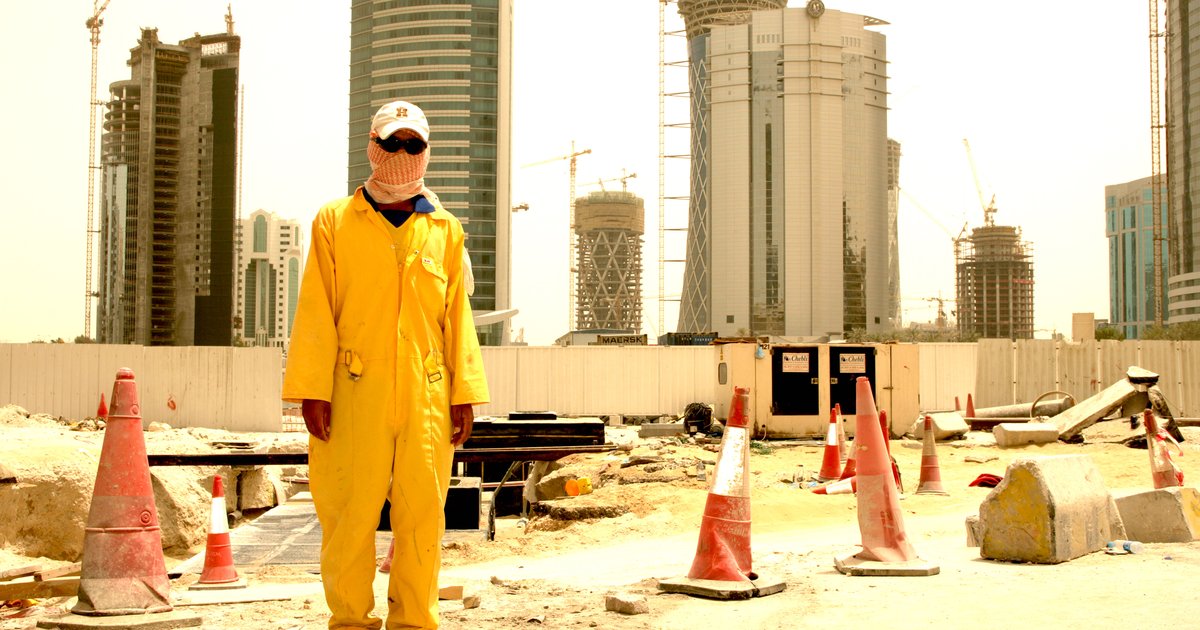Migrant workers still paying off debts that brought them to Qatar

To recover this outlay, the survey found that men need to spend at least 18 months earning money in Qatar before they break even. Women need around six months. If they are sent home too early, or if they fail to earn enough while there, they will return to debts that they will struggle to repay.
Sometimes this can happen through layoffs. Mia said hundreds of workers like him – electricians, plumbers, masons, carpenters, tile fitters – were forced to return to Bangladesh in 2018 when his company decided to shed workers to cut costs.
At other times, injury, arrest, or a lack of documentation can threaten to upset the balance. Sekender Ali, 45, said he spent 550,000 takas to go to Qatar four years ago. He worked as a welder, but said that he was unable to save money since his wages were so low. “All the money I earned was spent paying off debt,” he said.
Ali found himself unable to renew his work permit earlier this year, but because of his debts back home he remained in Qatar and continued to work. This came to a sudden stop, he explained, when he slipped and injured his ankle on a construction site. He went to the hospital, and as he was leaving he had his documents checked. He was deported four days later.
Working illegally, however, had served its function. Ali said he managed to pay off the debt that got him to Qatar just before he was sent home. He has now recovered, and recently took out a new loan of 600,000 takas to go to Saudi Arabia. “I don't have any savings or property to do anything at home, and there is less opportunity to get a job in the country,” he said. “So I decided to go abroad again.”
The debt remains even after the cup is won
Both Qatar and Bangladesh have recognised the problem, even though the measures they've instituted haven't eradicated it.
Qatar's labour laws prohibit companies from charging recruitment fees to overseas workers. The committee responsible for creating the World Cup's infrastructure also imposed worker welfare standards on its contractors in 2014. Among other provisions, contractors were directed to ensure that recruitment fees are not collected from its overseas workers, and to return any fees that are collected.
Despite this, an external audit on worker welfare in relation to the World Cup showed that, in 2021, migrant workers across all nationalities were still paying on average $1,333 for their recruitment. Bangladeshis, however, paid nearly twice that, more than any other group. The average recruitment fee for a Bangladeshi migrant worker was $3,136, and 83% of Bangladeshis surveyed reported paying recruitment fees. As countless migrant workers in Bangladesh can attest, despite the new rules for contractors these fees are not always reimbursed.
This “Eyes on Trafficking” story is reprinted from its original online location.
 ABOUT PBJ LEARNING
ABOUT PBJ LEARNING
PBJ Learning is a leading provider of online human trafficking training, focusing on awareness and prevention education. Their interactive Human Trafficking Essentials online course is used worldwide to educate professionals and individuals how to recognize human trafficking and how to respond to potential victims. Learn on any web browser (even your mobile phone) at any time.
More stories like this can be found in your PBJ Learning Knowledge Vault.
EYES ON TRAFFICKING
This “Eyes on Trafficking” story is reprinted from its original online location.
ABOUT PBJ LEARNING
PBJ Learning is a leading provider of online human trafficking training, focusing on awareness and prevention education. Their interactive Human Trafficking Essentials online course is used worldwide to educate professionals and individuals how to recognize human trafficking and how to respond to potential victims. Learn on any web browser (even your mobile phone) at any time.
More stories like this can be found in your PBJ Learning Knowledge Vault.
